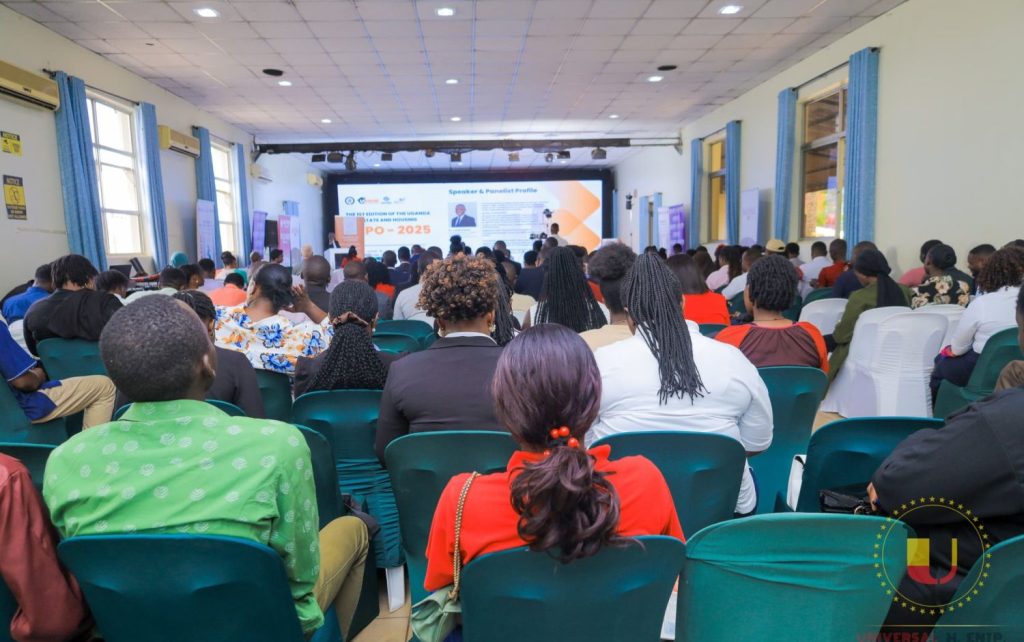Uganda’s Minister of Lands, Housing and Urban Development, Hon. Judith Nabakooba, has called on key players in the housing and real estate sector to prioritize affordability and inclusivity as the country battles a growing housing deficit.
Speaking at the inaugural Real Estate and Housing Expo 2025 in Kampala, Nabakooba emphasized the urgent need to develop housing solutions that respond to the realities of Uganda’s rapid population growth and urbanizations.
Organized by the Ministry of Lands, Housing and Urban Development in partnership with Douglas Events Ltd together with other key organizations, the expo’s theme is “Resilient by Design, Affordable by Intent: Shaping the Future of Real Estate”.
“I normally emphasize affordability, which affordability is relative, but we need to think about affordability. How can we achieve affordability as key players in housing?” she said.
She further drew attention to the distinction between affordable housing and low-cost housing, stressing that both need to be addressed, alongside targeted efforts to provide homes for government workers and people in hard-to-reach areas.
The Minister noted that Uganda faces a housing deficit of 2.4 million units. Each year, more than a million people are added to the country’s population, driven by a growth rate of 2.9% and urbanization at 5.4%.
Despite this, current developers are only able to deliver 60,000 housing units annually, far below the 300,000 units needed to meet demand.
“This is an opportunity for players in the housing and real estate sector to see how the gap can be covered,” Nabakooba urged.
The Expo coincides with World Habitat Week, a global campaign that raises awareness about the state of cities and towns, and the fundamental right of all people to adequate shelter.
This year’s theme, “Unlocking Uganda’s Real Estate Potential: Resilient by Design, Affordable by Intent”, aligns with the UN’s focus on responding to the global urban crisis.
Nabakooba challenged sector actors to embrace sustainability and resilience, noting that climate change impacts such as floods, droughts, and landslides increasingly threaten Uganda’s cities.
“How do we build cities that are adaptable, inclusive, and thriving? By prioritizing sustainable urban development, we can unlock the potential of our cities to drive economic growth, create jobs, and enhance livelihoods,” she said.
The real estate sector is one of the fastest-growing industries in Uganda, contributing 7.5% to the national GDP and ranking as the country’s second-largest employer after agriculture. Market analysts project that the construction industry will grow at an annual rate of 8.1% over the next decade.
Nabakooba pointed to the National Housing Policy of 2016 as the guiding framework, which shifted government’s role from direct housing supply to creating an enabling environment for private developers.
She called for deeper collaboration between government, private sector, and communities to turn discussions into tangible solutions.
“Our strength is in collaboration. Let us advance the conversation to practical solutions and involve corporate action to address the most pressing housing challenges facing Ugandans,” she urged.
Douglas Mukwaya, CEO of Douglas Events Ltd said the event is a groundbreaking initiative that will transform how we approach housing and urban development in Uganda.
Mukwaya commended the invaluable support of the private sector partners, whose investments and innovation continue to drive growth in Uganda’s real estate sector including; Centum Real Estate, developers of Pearl Marina and Mirembe Villas; Footsteps Furniture; KCB Bank; Housing Finance Bank; Liquid Intelligent Technologies; Universal Multipurpose Enterprises; Fakhruddin Properties; Pool Doctors (U) Ltd; Bulwadda Real Estates; Regal Paints; and MTN Uganda for their collective commitment to shaping Uganda’s housing future.
The Expo, running from September 26 to 28 at Katikati Grounds, brings together government, civil society, private developers, and the public to exchange ideas, showcase innovations, and chart a path toward a more sustainable housing future.


